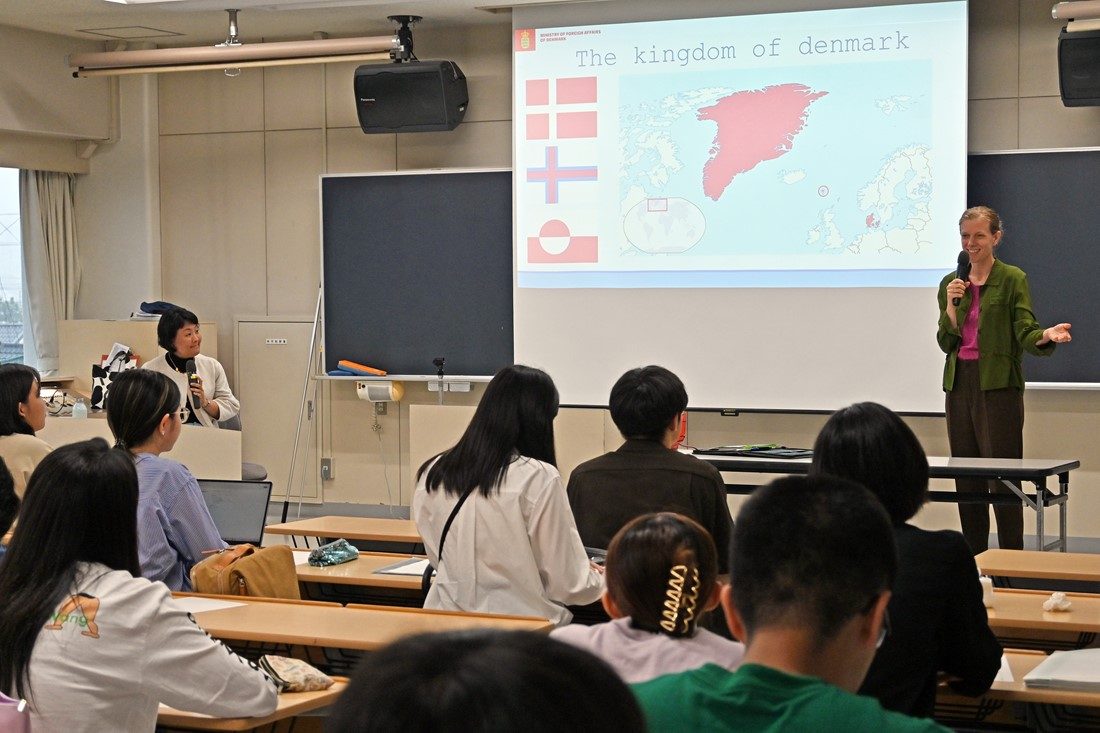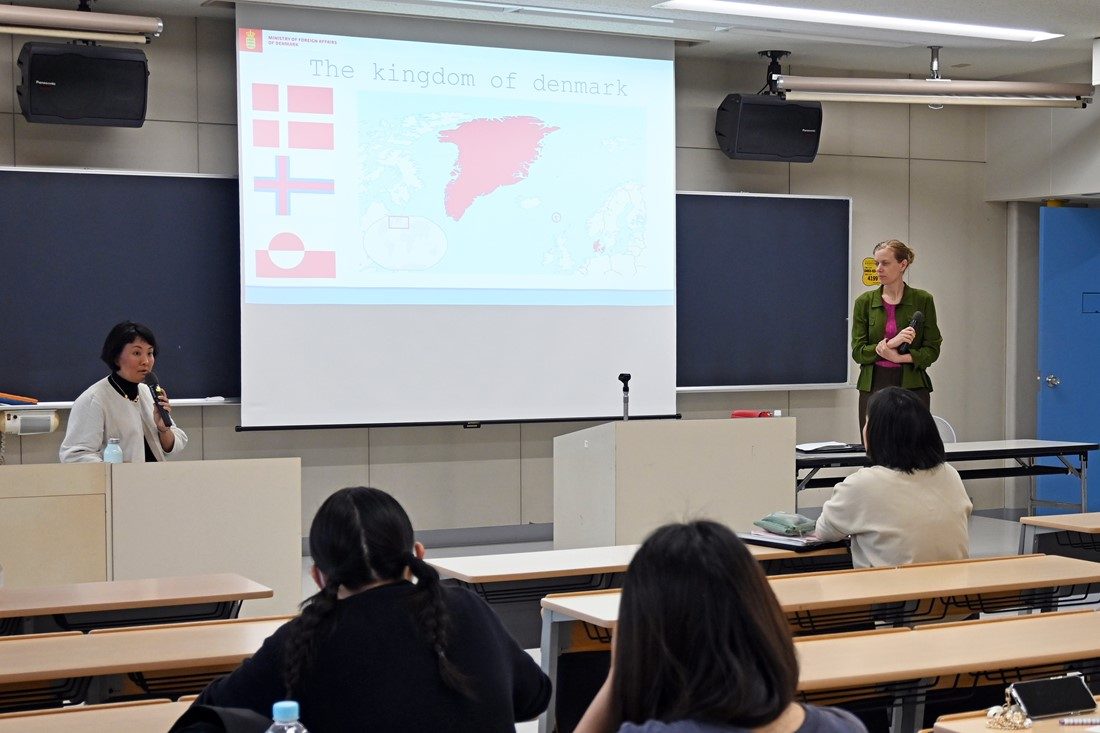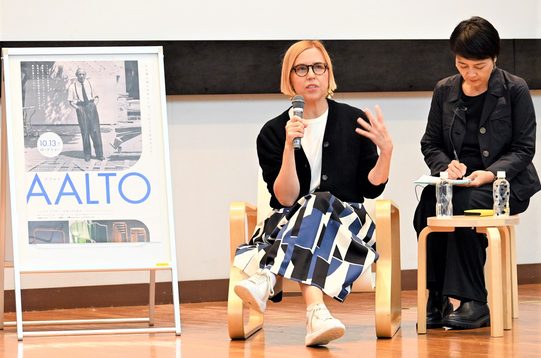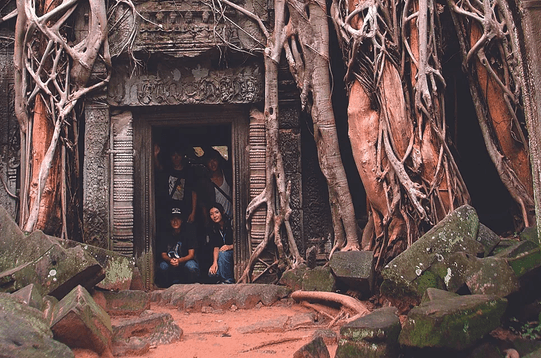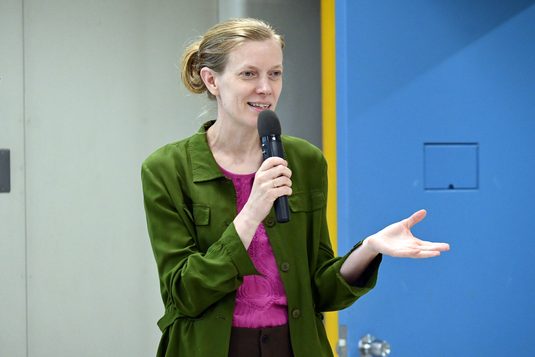
School of Cultural and Social Studies Department of Nordic Studies held a lecture on June 18 at Shonan Campus by Ms. Mayasophie Bouagot, Deputy Chief of Mission at the Royal Danish Embassy in Japan. Tokai University The lecture was organized as part of the course "Nordic Thought and Identity" offered by the department, and was attended by about 80 students.
After graduating from university, Mr. Buago worked for the Greenlandic government before joining the Danish Ministry of Foreign Affairs, where he arrived in Japan last August as Deputy Chief of Mission. His lecture was interpreted by Yuriko Shibayama Associate Professor, who is in charge of the class, and he also answered questions submitted by the students in advance. After explaining the role of diplomacy and the work of diplomats, Mr. Buago asked, "What is the most important task? He answered, "The most important task is to support government officials when they come to Japan. Not only do I provide day-to-day support such as transportation and meals, but I was also recently involved in drafting a comprehensive document on the strategic partnership between the two countries, and it was a painstaking task to reconcile the two sides' expressions and find a common ground.
Then, on the theme of this class, "Identity," he said, "Danish identity is greatly influenced by Germany, which is located on its southern border. For example, the history of the German occupation in World War II differs depending on whether you see Denmark as having saved many lives because it did not actively respond to the war, or whether you see it as having should have responded. Identity is created by geographical circumstances, history, relations with neighbors, philosophy, and other things that come from within a country," he said. He also explained the population, official language, industry, education, and welfare of Greenland and the Faroe Islands, the country's self-governing territories. "They can be considered one country, but they have different political systems. In recent years, there has been a move by the Danish government to recognize more autonomy for Greenland and the Faroe Islands," he said.
A student who attended said, "I had researched the autonomous region in the past, but it was a valuable experience to hear the real voice of someone who had worked there. As a diplomat, he presented a wide range of opinions from various angles, which was very interesting.
